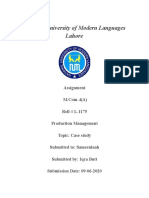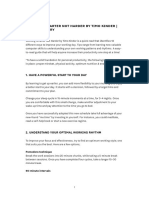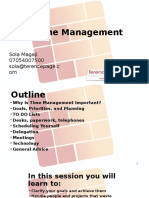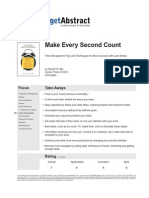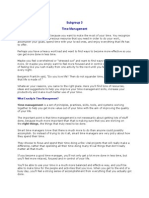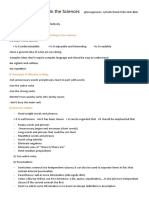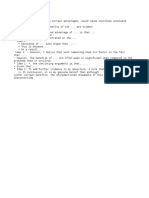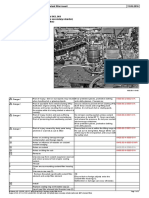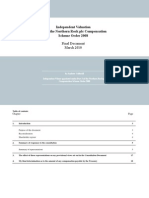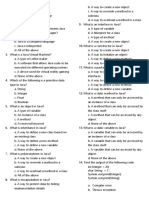0% found this document useful (0 votes)
36 views2 pagesIntroduction To Effective Time Management: 1/ Prioritise Work
This document provides tips for effective time management. It discusses prioritizing work into urgent/important and not urgent/not important categories. The power of saying "no" to non-essential tasks is also covered. Avoiding distractions like phones, emails and office noise can help stay focused. Setting goals and starting with small achievements can combat procrastination.
Uploaded by
Ngô Minh KhuêCopyright
© © All Rights Reserved
We take content rights seriously. If you suspect this is your content, claim it here.
Available Formats
Download as DOCX, PDF, TXT or read online on Scribd
0% found this document useful (0 votes)
36 views2 pagesIntroduction To Effective Time Management: 1/ Prioritise Work
This document provides tips for effective time management. It discusses prioritizing work into urgent/important and not urgent/not important categories. The power of saying "no" to non-essential tasks is also covered. Avoiding distractions like phones, emails and office noise can help stay focused. Setting goals and starting with small achievements can combat procrastination.
Uploaded by
Ngô Minh KhuêCopyright
© © All Rights Reserved
We take content rights seriously. If you suspect this is your content, claim it here.
Available Formats
Download as DOCX, PDF, TXT or read online on Scribd
/ 2







